
In the late thirteenth and early fourteenth centuries, it was said that there were two kings in England: one in London, who wore a crown, and one in Durham, who wore a miter. The latter was Antony Bek, whose title, bishop of Durham, captures only a small portion of the power and influence he wielded. As bishop from 1284 until his death in 1311, Bek was head of the palatinate of Durham, a sort of independent state within a state. The palatinate had vast landholdings and was permitted to mint coins, collect taxes, raise armies, and administer justice. In return, it was tasked by the Crown with safeguarding its own territory in the far northeast of England against the persistent threat of Scottish invasion. In fact, Bek was as much military and diplomatic figure as a religious one. In 1270, before becoming a bishop, he went on crusade with the future King Edward I (r. 1272–1307), and in 1298 served as the monarch’s right-hand man in the Battle of Falkirk, foiling William Wallace’s attempt to win Scottish independence. Bek was later named patriarch of Jerusalem, making him the senior churchman in England. “Bek was a weather changer, a power broker, a man of great political and social influence,” says Chris Gerrard, an archaeologist at Durham University. “He was essentially the commander in chief in the north, with a lot of razzmatazz around him and a grand image of himself.”
Esta historia es de la edición September/October 2020 de Archaeology.
Comience su prueba gratuita de Magzter GOLD de 7 días para acceder a miles de historias premium seleccionadas y a más de 9,000 revistas y periódicos.
Ya eres suscriptor ? Conectar
Esta historia es de la edición September/October 2020 de Archaeology.
Comience su prueba gratuita de Magzter GOLD de 7 días para acceder a miles de historias premium seleccionadas y a más de 9,000 revistas y periódicos.
Ya eres suscriptor? Conectar
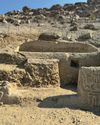
ORIGINS OF PERUVIAN RELIGION
While investigating looters' holes at the site of La Otra Banda in northern Peru's Zaña Valley, archaeologist Luis A. Muro Ynoñán of the Field Museum and the Pontifical Catholic University of Peru spotted carved blocks around seven feet below the surface.
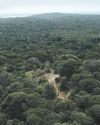
ISLAND OF FREEDOM
Many of the enslaved Africans sent to Brazil beginning in 1549 were from what is now Angola, where one of the most widely spoken languages was Kimbundu.
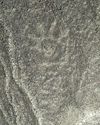
NAZCA GHOST GLYPHS
From the 1940s to the early 2000s, geoglyphs were discovered in the Nazca Desert of southern Peru depicting animals, humans, and other figures at the rate of 1.5 per year.

COLONIAL COMPANIONS
The ancestry of dogs in seventeenth-century Jamestown offers a window into social dynamics between Indigenous people and early colonists.
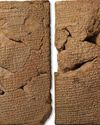
BAD MOON RISING
The British Museum houses around 130,000 clay tablets from ancient Mesopotamia written in cuneiform script between 3200 B.C. and the first century A.D.
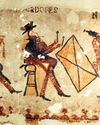
DANCING DAYS OF THE MAYA
In the mountains of Guatemala, murals depict elaborate performances combining Catholic and Indigenous traditions
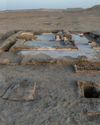
LOST GREEK TRAGEDIES REVIVED
How a scholar discovered passages from a great Athenian playwright on a discarded papyrus

Medieval England's Coveted Cargo
Archaeologists dive on a ship laden with marble bound for the kingdom's grandest cathedrals
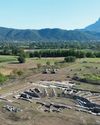
Unearthing a Forgotten Roman Town
A stretch of Italian farmland concealed one of the small cities that powered the empire
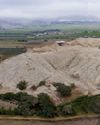
TOP 10 DISCOVERIES OF 2024
ARCHAEOLOGY magazine reveals the year's most exciting finds